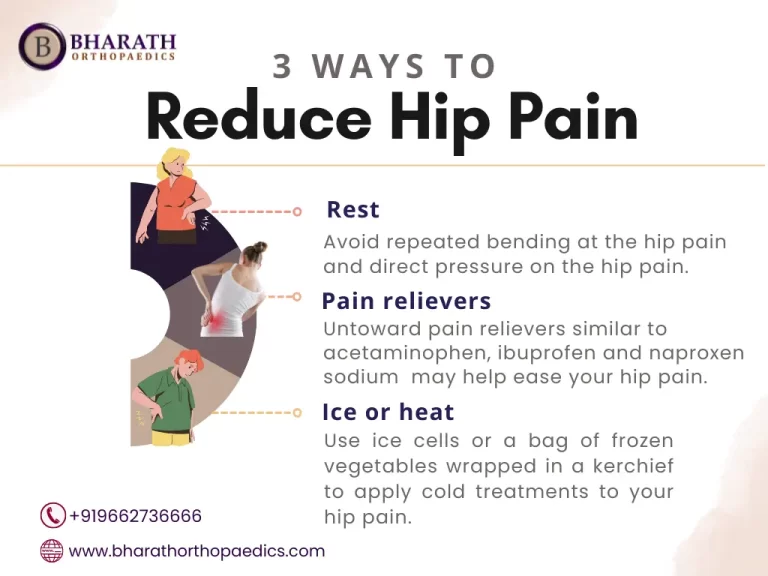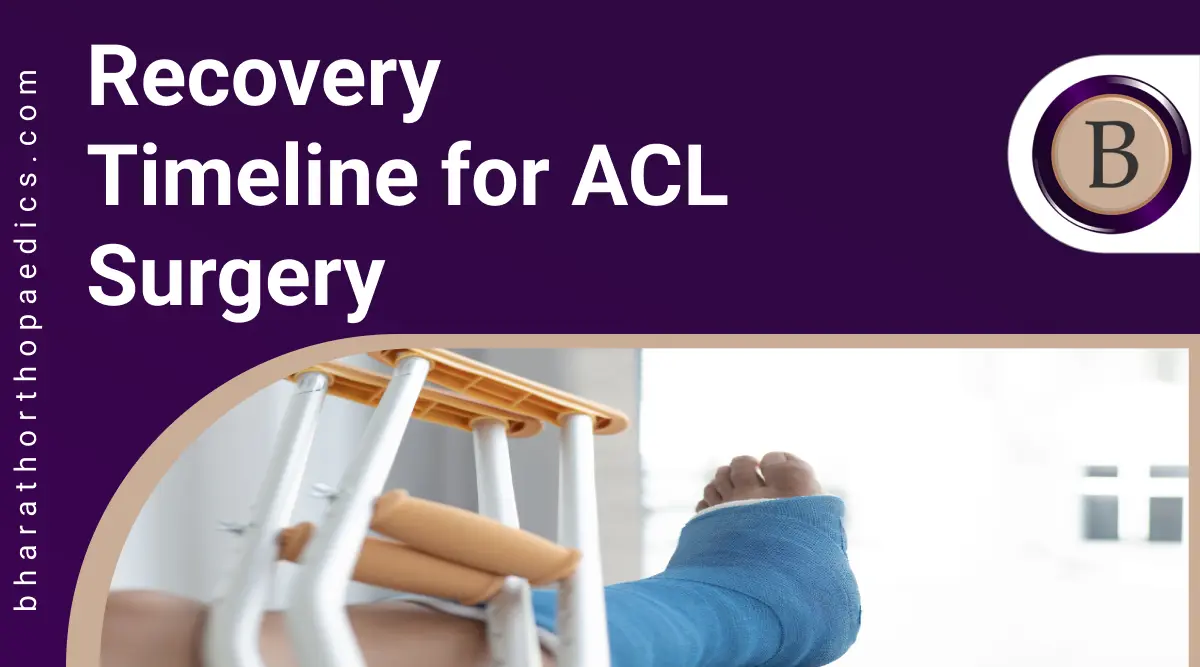The hip pain joint can repel repeated stirs and a good quantum of wear and tear and gash. This ball and socket joint the body’s largest fit together in a way that enables fluid movement.
Whenever you employ Hip pain Treatment in Chennai (for illustration, by going for a run), a bumper of cartilage helps help disunion because the hip pain bone moves in its socket.
Despite its continuity, the hip pain joint isn’t imperishable. With age and use, the cartilage can influence or become damaged. Muscles and tendons within the hip pain can get overused. Bones within the hip pain can break during a fall or other injury. Any of those conditions can cause hip pain.
Still, then a rundown of what may well be causing your discomfort and the way to urge hip pain relief, if your hips are sore. We are going to look at hip pain treatment in Chennai.

Symptoms of Hip Pain Treatment in Chennai
Symptoms of hip pain treatment in Chennai typically depend on the underlying cause and may include:
- Pain: Persistent or intermittent discomfort in the hip joint or surrounding areas.
- Stiffness: Difficulty in moving the hip, especially after periods of inactivity.
- Swelling: Visible inflammation or swelling around the hip joint.
- Reduced Range of Motion: Difficulty in performing daily activities like walking or bending.
- Grinding Sensation: Feeling of grinding or clicking within the hip joint during movement.
- Radiating Pain: Pain that extends to the groin, thigh, or buttocks.
- Limping: Altered gait patterns due to pain or stiffness in the hip.
Effective treatment in Chennai often involves a combination of medication, physical therapy, and in some cases, surgical interventions tailored to address these symptoms and improve overall hip function.
What is a Hip Joint?
The hip joint links the thigh bone (femur) and the pelvis in a ball-and-socket configuration. It allows for a wide range of motion, essential for activities like walking and sitting. The ball-shaped head of the femur fits into the socket-like acetabulum, forming a stable joint. Surrounding ligaments and muscles provide support and enable coordinated movement in this crucial weight-bearing joint.
What are the Causes of Hip Pain?
Hip pain can result from various causes, including osteoarthritis, rheumatoid arthritis, bursitis, tendinitis, and muscle strains. Injuries like hip fractures, dislocations, or labral tears can also be sources of pain. Additionally, conditions like sciatica, herniated discs, and nerve impingements may manifest as hip discomfort. Seeking guidance from a healthcare professional is essential for a precise diagnosis and the right treatment.
What are the Symptoms of Hip Arthritis?
Symptoms of hip arthritis include persistent pain in the hip or groin, stiffness, reduced range of motion, and discomfort during activities like walking or climbing stairs. Additionally, individuals may experience joint tenderness, swelling, and a sensation of grinding or clicking in the hip. As arthritis progresses, mobility may further decline, impacting daily activities and quality of life.
Types of Hip Pain Treatment
Hip pain treatment options include:
- Medications: Pain relievers, anti-inflammatories, and injections to reduce inflammation and discomfort.
- Physical Therapy: Exercises to strengthen muscles around the hip joint and improve flexibility.
- Lifestyle Modifications: Weight management, proper posture, and activity adjustments to reduce strain on the hips.
- Assistive Devices: Canes, walkers, or orthotics to support the hip joint and aid mobility.
- Minimally Invasive Procedures: Injections like corticosteroids or hyaluronic acid to alleviate pain and improve joint function.
- Surgical Interventions: Options include hip arthroscopy, hip resurfacing, or total hip replacement for severe cases.
- Complementary Therapies: Acupuncture, chiropractic care, or massage to manage pain and promote healing.
Diagnosis of Hip Pain
Diagnosis of hip pain typically involves several steps to pinpoint the underlying cause:
- Medical History: Your doctor will ask about symptoms, duration of pain, and any past injuries or conditions.
- Physical Examination: This includes assessing range of motion, strength, and any signs of inflammation or deformity.
- Imaging Tests: X-rays can reveal bone abnormalities, fractures, or arthritis. MRI or CT scans provide detailed images of soft tissues and joints.
- Lab Tests: Blood tests may be used to rule out infections or systemic conditions contributing to hip pain.
- Diagnostic Injections: Injecting a numbing medication into the hip joint can help confirm if the joint itself is the source of pain.
By combining these methods, doctors can accurately diagnose the cause of hip pain and recommend appropriate treatment.
Prevent or Reduce Hip Pain
To prevent or reduce hip pain, consider these tips:
- Maintain a Healthy Weight: Excess weight strains hip joints.
- Stay Active: Regular exercise strengthens muscles supporting the hips.
- Practice Good Posture: Proper alignment reduces stress on joints.
- Use Proper Techniques: Lift objects correctly to avoid strain.
- Choose Joint-Friendly Activities: Low-impact exercises like swimming or cycling are gentle on hips.
- Warm Up Before Activity: Prepares muscles and joints for movement.
- Stay Flexible: Stretching helps maintain hip mobility.
- Wear Supportive Shoes: Proper footwear supports body alignment.
Treatment Options for Hip Pain
Medications:
- Pain relievers (e.g., acetaminophen, NSAIDs) to manage pain.
- Anti-inflammatory drugs to reduce inflammation.
Physical Therapy:
- Customized exercise programs to strengthen hip muscles.
- Techniques to improve joint mobility and flexibility.
Injections:
- Corticosteroid injections for reducing inflammation and pain relief.
- Hyaluronic acid injections to lubricate the hip joint.
Surgical Options:
- Hip Arthroscopy: Minimally invasive procedure to repair joint damage.
- Hip Replacement Surgery: Replacement of the damaged hip joint with a prosthesis.
- Osteotomy: Surgical realignment of bones to improve joint function.
Lifestyle Modifications:
- Activity modifications to avoid movements that exacerbate pain.
- Use of assistive devices like canes or walkers for support.
Alternative Therapies:
- Acupuncture and chiropractic care for pain management.
- Massage therapy to relieve muscle tension and improve circulation.
Non-Surgical Treatments for Hip Pain
Non-surgical treatments for hip pain often include:
- Physical Therapy: Enhancing strength and flexibility through physical exercises.
- Pain Medications: Over-the-counter or prescription medications for pain relief.
- Activity Modification: Adjusting activities to reduce strain on the hip.
- Weight Management: Maintaining a healthy weight to alleviate pressure on the hip joint.
- Assistive Devices: Canes, crutches, or braces for support.
- Heat or Ice Therapy: Applying heat or cold packs to reduce inflammation.
- Injections: Injections of corticosteroids or hyaluronic acid are administered to alleviate pain and reduce inflammation.
Best Hip Pain Treatment in Chennai
Bharath Orthopaedics is one of the best Hip Pain treatments in Chennai. Dr. L. Bharath is one of the leading orthopedic surgeon in Chennai and the founder of Bharath Orthopaedics. Dr. L. Bharath specializes in Knee Replacement and hip surgery including primary, complex &revision (previously failed) joint replacements, sports injuries & arthroscopic (keyhole) procedures.
Having performed over 8000 surgeries with a phenomenal success rate, Dr. L. Bharath stands out as among the best orthopedic surgeons in India (& the best orthopedics in Chennai) with his extensive focus on upgrading himself on procedures and operations, in particular, the Joint replacement surgery.
Dr. Bharath has pioneered smart hip pain treatment technologies to ensure painless, fast recovery, quick rehabilitation, and a lesser chance of infection after surgery. Their team of dedicated and highly qualified orthopedic surgeons, nurses, and staff are committed to providing the best possible care to their patients, from the intake to bedside manner to post-operative care. Dr. Bharath is the best for Hip Pain Treatment in Chennai.
Conclusion
For effective hip pain treatment in Chennai, seeking timely medical attention is crucial. Orthopedic surgeon in Chennai offer comprehensive diagnosis and advanced treatments tailored to alleviate hip pain effectively. From non-invasive therapies like physical therapy and medication to surgical interventions such as hip replacement surgeries, these options are designed to restore mobility and improve quality of life. By consulting with experienced healthcare professionals in Chennai, individuals can access personalized care and targeted treatments to address hip pain, ensuring long-term relief and enhanced well-being.
Read also Best Spine Surgeon in Chennai.




